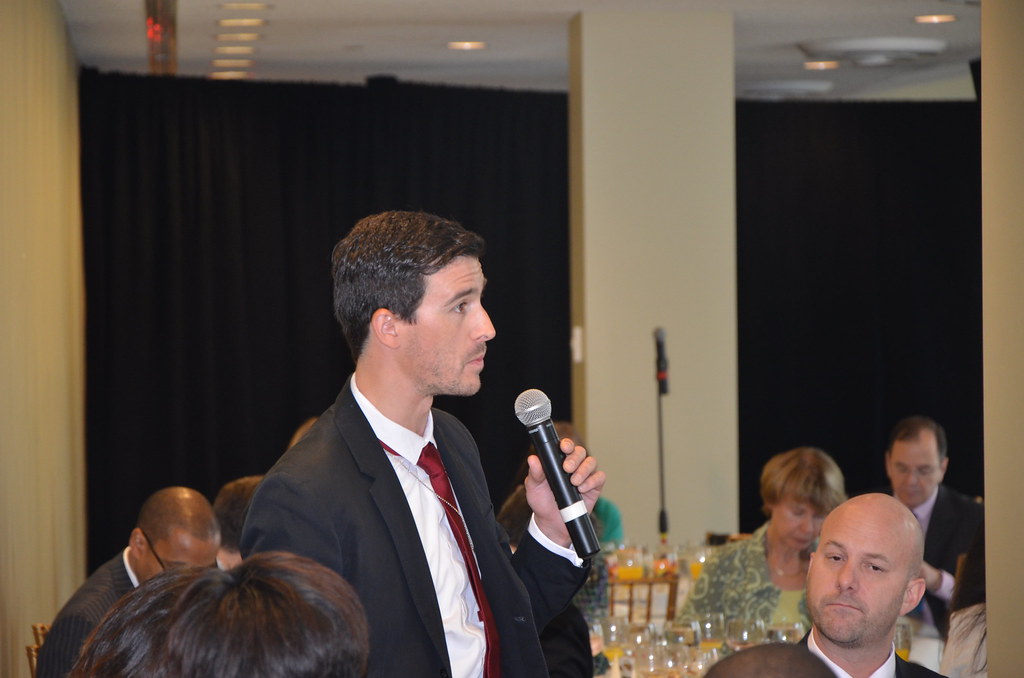The United Nations General Assembly High-level Dialogue on International Migration and Development (HLD), held at UN Headquarters in New York on 3-4 October 2013, was the second High-level Dialogue to discuss the relationship between migration and development. It was organized around the overall theme of "Identifying concrete measures to strengthen coherence and cooperation at all levels, with a view to enhancing the benefits of international migration for migrants and countries alike and its important links to development, while reducing its negative implications. It comprised two plenary meetings as well as four interactive round tables focusing on the following themes:
- Assessing the effects of international migration on sustainable development and priorities for the post-2015 development framework;
- measures to ensure respect for and protection of the human rights of all migrants;
- strengthening partnerships and cooperation on international migration, and mechanisms to effectively integrate migration into development policies; and
- international and regional labour mobility and its impact on development.
The visibility and relevance of the ILO in global debates on international migration and development was certainly raised by the ILO's participation in the HLD and in the preparations for the event during the year. This was noticed by the governments, the social partners and other stakeholders who attended.
| The Domestic Workers Convention, 2011 (No. 189) featured prominently, and calls for its ratification and implementation |
The significance of decent work to the migration-development nexus was a recurrent theme throughout the discussions. Issues central to the ILO's mandate and Decent Work Agenda - such as the protection of the human and labour rights of migrant workers, including non-discrimination and equality of treatment in respect of wages and working conditions; labour migration governance, including equitable recruitment practices, meeting labour market needs at all skill levels, more effective matching of labour supply and demand, and the role of social dialogue and labour market institutions in labour migration; social protection, including portability of social security benefits; skills recognition and certification; and bilateral labour migration agreements - were frequently referred to by many governments in their statements to the HLD plenary sessions of the General Assembly as well as in interventions during all four round tables.
Many of these issues are also identified in the UN Secretary-General's report prior to the HLD and in its eight-point agenda for action. The Domestic Workers Convention, 2011 (No. 189) also featured prominently, and calls for its ratification and implementation were made, most notably by the UN Secretary-General, the Deputy UN Secretary General, the Special Representative to the UN Secretary-General on International Migration and Development (SRSG) as well as by the EU Commissioner for Home Affairs.
The results of the HLD clearly demonstrate a large interest in considering good practices related to harmonizing labour migration and employment policies, labour market needs and skills assessment for better job matching, portability of pensions, and protection of migrant workers' rights, including reducing both abuse and costs related to recruitment, during the whole process of labour migration.
The ILO contributed significantly to the HLD preparatory process as well as to the HLD itself through the interventions of the Director General, Mr. Guy Ryder, as well as by organising and co-hosting two important side events – one on innovations in labour migration governance and another on migrant domestic workers. The ILO Director-General participated in round table 4, where he addressed three interconnected pillars of labour mobility necessary to achieve equitable and sustainable development:
- sound labour market needs assessment at all skills levels;
- improved protection of the human rights, including labour rights, of migrant workers , in line with international human rights and ILO labour standards; and
- the need for social dialogue to legitimize migration and development policies for regional integration and promote safe and regular labour mobility.
The Director-General also delivered a statement during round table 2 on protection of migrant workers’ rights and underscored the need to move beyond debates centred on remittances towards concrete measures that close the serious gaps in migration planning and governance.
The HLD concluded with the adoption by UN Member States of the
Declaration of the High-level Dialogue on International Migration and Development, which includes references to a number of areas in which ILO works, such as respect for the human rights of all migrants; the protection of migrant women in all sectors, including those involved in domestic work; the need to respect and promote international labour standards and the rights of migrants in their workplaces; the contribution of application international conventions, including the International Convention on the Protection of the Rights of All Migrant Workers and Members of their Families, to the international system for the protection of migrants; and cooperation on labour mobility programmes.
In the lead-up to the HLD the ILO organised and co-hosted with the Government of Sweden a High-level Breakfast Roundtable on Innovations in Labour Migration Governance: Making decent work a reality for migrant workers, which showcased rights-based innovations in labour migration governance that also had positive development impacts. These innovations came from ILO’s tripartite constituents, civil society organisations, businesses, and migrants themselves. The ILO Director-General, Mr. Guy Ryder, opened the event.
The ILO also organized, in partnership with the Permanent Missions of Italy and the Philippines to the UN, and the Office of the UN High Commissioner for Human Rights, a high-level panel discussion of a side event on migrant domestic workers in the framework of the strategy adopted by the GB (GB.312/INS/3), in order to make decent work a reality for domestic workers worldwide and with a view to highlighting the progress and priorities for action for the ILO and it constituents in this area of work. Over 100 government, IGO, and civil society delegates attended.
Innovations in Labour Migration: ILO-Sweden breakfast event photos










